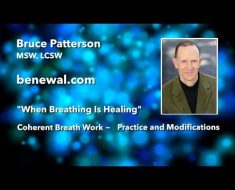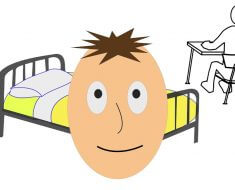How To Cure GERD Permanently
 Dr. Michael Ruscio, DC: Hi, everyone. This is Dr. Ruscio. I’m here with Mona, who’s had a very interesting case with reflux. And really, much of what you’ve experienced, Mona, reinforces what I often call an algorithm or an order of operations. I’m grateful that you’re willing to take the time to explain what you were suffering with, what you’ve tried, and take us along the journey of steps over the past several weeks. So, welcome. Mona: Hi, thank you for having me. DrMR: Can you tell people a little bit about the symptoms that you were struggling with and what the road looked like? I said reflux a moment ago, of course. I know you went to a few different doctors. And at one point I believe you even went to the ER because you were just distraught with, “What’s happening in my body?” and didn’t have any answers for that. So get us up to speed on what the road was before you and I started working together. Mona: Well, How to cure GERD permanently for eight months I had chronic reflux.
Dr. Michael Ruscio, DC: Hi, everyone. This is Dr. Ruscio. I’m here with Mona, who’s had a very interesting case with reflux. And really, much of what you’ve experienced, Mona, reinforces what I often call an algorithm or an order of operations. I’m grateful that you’re willing to take the time to explain what you were suffering with, what you’ve tried, and take us along the journey of steps over the past several weeks. So, welcome. Mona: Hi, thank you for having me. DrMR: Can you tell people a little bit about the symptoms that you were struggling with and what the road looked like? I said reflux a moment ago, of course. I know you went to a few different doctors. And at one point I believe you even went to the ER because you were just distraught with, “What’s happening in my body?” and didn’t have any answers for that. So get us up to speed on what the road was before you and I started working together. Mona: Well, How to cure GERD permanently for eight months I had chronic reflux.
Because I didn’t have a medical background, I didn’t know what that would look like. So I went to Kaiser twice and saw my primary care doctor, who said I had a nasal drip and I had an infection. So he gave me antibiotics, which didn’t work. Then I went back, he gave me a nasal spray. Then I went to a specialist who did do the H. pylori test, which came out negative. I got put on another set of antibiotics. And my symptoms were: a lot of saliva in my mouth, I had a really bad taste in my mouth, I was coughing. So due to the bitter taste, I went to visit my dentist. He said that I needed to redo one of my fillings. That didn’t work. So I went to get a second opinion from another dentist, and she said that I had a cavity. That didn’t solve the problem. How to cure GERD permanently So finally I ended up in the ER, because I thought I was sick and it was stressing me out.
DrMR: And then we started working together. First of all, let me say, I understand how frustrating that can be, where you go to various specialists and they all have different ideas in terms of what might be causing the problem. And you try all these different interventions and you don’t really achieve any headway. One of the things that we discussed is that this reflux, the symptoms of the constant throat clearing, the bitter taste in your mouth, and the saliva might be a byproduct of what’s going on lower down in your gut, and may not necessarily be a problem in the mouth, as the dentists thought. And there may be something there that’s outside of H. pylori. H. pylori were tested, How to cure GERD permanently but there’s certainly more that can be happening in the gut than just H. pylori. This is one of the reasons why (for our audience) I harp on not limiting ourselves based upon lab testing.
Lab testing can be helpful, but only really gives us a slice of what could be going on in the gut. So we started off with a simple approach so as not to overwhelm you and decided to start with just a trial on low FODMAP. That seemed to work pretty darn well. Do you want to tell people, just in brief, what you noticed from the low FODMAP diet? Mona: The low FODMAP diet was a game-changer for me.
In a week, I noticed that the bad taste in my mouth had gone away. I didn’t even know what it felt like to have a normal taste in my mouth anymore. Even gum would get bitter. I tried to chew gum and I had no luck. What was great about it was you gave me a list of foods that I could eliminate, so I didn’t have to really think about it. It was simple. What I noticed with the low FODMAP diet is it helps with my IBS. So although I was stressing and losing sleep over my acid reflux, now I’ve actually helped heal my IBS. DrMR: And were there particular symptoms of IBS? Were you going to the bathroom often or not that often? Was there abdominal pain? What were the other symptoms that you feel were helped? Mona: It was more growling in my stomach, bloating, or constipation.
You’ve been so committed to this process. And I’ve noticed, now that you helped me heal my gut, that my skin’s better, I have more energy and less fatigue, and I’m not bloated anymore. I thought I was cursed because my mom had IBS, so I thought that I had to live with it forever. DrMR: Right. So some nice benefits in other non-gut areas, right? Your fatigue, your skin. And so we were off to a good start with just low FODMAP. But that didn’t seem to get us fully out of the lurch, so to speak. You were clearly improved. We tried something a little bit different with you where we put you on our Intestinal Repair Formula, also known as Intestinal Support Formula. And normally what I recommend people do is do that as one of the last therapeutic options.
But in your case, we decided to go for more of a simple approach and just try adding on this one thing. And again, that seemed to give you another bump in improvement. Do you want to speak to that briefly? Mona: The Intestinal Repair Formula worked in about a week for me as well. I felt better. It was that and the FODMAP diet. I was more regular, and I noticed that the coughing had stopped, the mucous was less. Then when you gave me the antimicrobials, I felt like it took it even to another step where I felt like my gut was actually healing and just kind of cleansing. I like that you’re not masking my problem. You’ve helped really heal my gut. So I thank you for that. DrMR: Well, yeah. Absolutely. That’s my job here in this situation. And what’s really interesting in your case—and I want to just kind of note this for our audience—is the order of operations. And I do recommend using the Intestinal Repair, a.k.a. Intestinal Support Formula.
But your case really reinforces that we should be doing the antimicrobials after diet. So the antimicrobials, from our book protocol, are our Biota-Clear 1a and 1b and 2a and 2b. So there’s a time and a place for all these therapies, but you really did seem to get a significant boost in your improvements from the antimicrobials. That really reinforced for me as a clinician that instead of going right to the Intestinal Repair Formula, which has its own merit, we want to make sure to start with diet. Then after diet, consider antimicrobials. And we also did use probiotics. I should just mention really quickly that probiotics we use along with diet, and both of those seemed to help you. The picture I’m trying to paint for people here is it’s not just one thing. Someone might go to their gastroenterologist. If you had a really forward-thinking gastroenterologist, as an example, they may have recommended the low FODMAP diet.
And you may have said, “Wow, I’ve got 30-ish percent improvement from that.” But after a couple of months, if that didn’t fully lead to a resolution of all your symptoms, you may have said, “Well, now what do I do?” And then you go on to the next thing. And people will jump from one thing to one thing to one thing, instead of having this process of stringing together a few different helpful therapies. That can be the mixture of healing inputs to the gut that can be needed to finally get over that hump.
So sometimes it takes a little bit more patience and diligence, How to cure GERD permanently rather than just looking for this one thing that will fix everything. And your case was such a beautiful example of that. This steady upward march of improvements, but not able to get there fully from just one change in and of itself. Mona: The probiotics I also noticed for me have helped with my dairy intake. So when I was bloated and just growling and feeling fatigued, I thought I could cut out just gluten and dairy from my diet. And I’ve noticed ever since I’ve been taking the probiotics that I’ve been able to introduce dairy back into my diet.
DrMR: That’s a big plus. Mona: It’s nice because I didn’t know any of this How to cure GERD permanently. And I appreciate that you’re putting the information out there. I thought that I would just have to feel terrible, and thought it was my age. I wasn’t sure what it was. But what I would suggest is, if people feel bad, that they don’t settle for it. And the process is simple. It doesn’t have to be hard, and you can feel 100% every day. DrMR: Well, that’s well said, and I think a great note for us to end on. Mona, thank you again. So excited that you’re feeling better. Of course, it always makes me feel so good to see people not only have their digestive symptoms improved but also have better energy and better skin like you were mentioning. So a wonderful depiction of how impactful it can be to improve your gut and then see all these other symptoms that can improve as a byproduct of that. So thank you so much again for sharing your story with us. Mona: Thank you. I enjoyed it.





